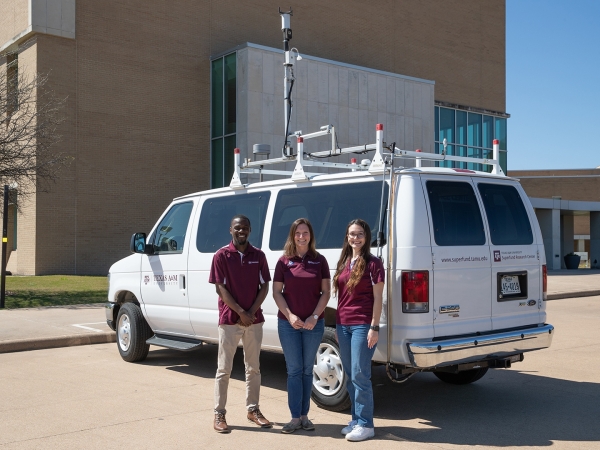Texas A&M University’s new mRAPiD air quality testing van, a collaboration between the Superfund Research Center and School of Public Health, will give researchers and communities the ability to detect hazardous chemical air pollutants in real time, while on location.
mRAPiD, which stands for “mobile Responding to Air Pollution in Disasters,” was developed for use during disaster events where there is a release of airborne pollutants. It will provide immediate, hyperlocal air quality information to potentially exposed populations, including first responders.
The van is equipped with a highly sensitive instrument that allows it to detect a wide range of chemical pollutants and offer real-time results that are linked with the van’s specific location.
The van is funded by a grant through Texas A&M’s Research Development Fund awarded to Natalie Johnson and Thomas McDonald at the School of Public Health, and Dr. Ivan Rusyn, director of the Superfund Center.
Continue reading at Texas A&M University
Image via Texas A&M University


